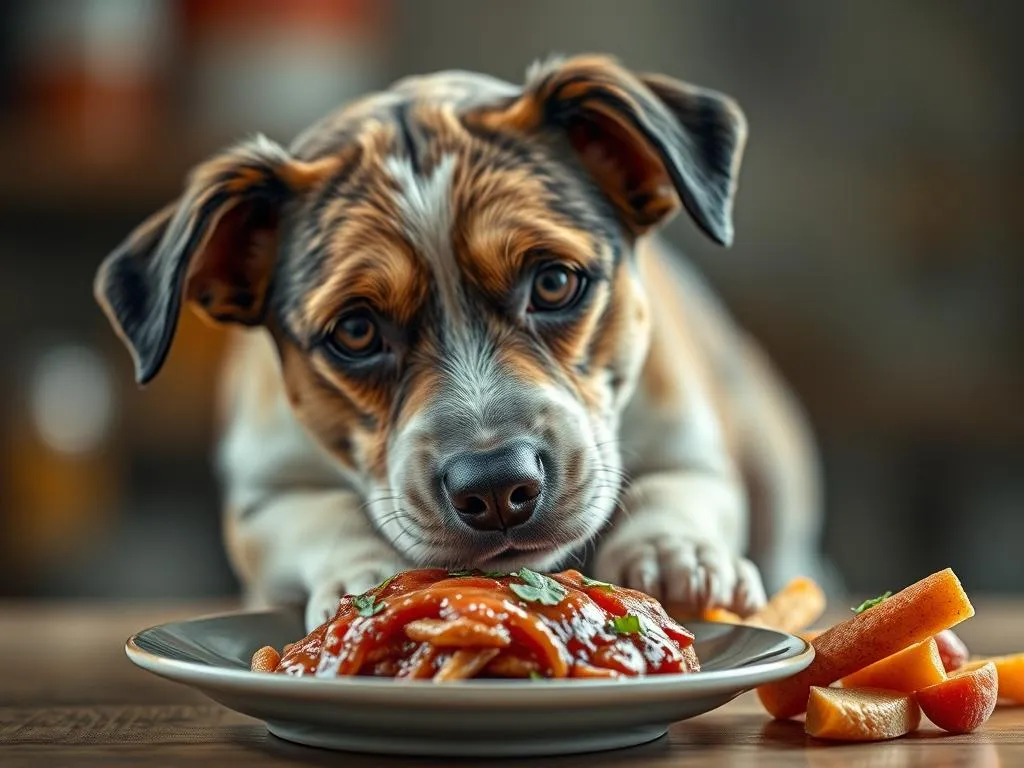
Introduction
Food obsession in dogs is a behavior characterized by an intense preoccupation with food, often leading to excessive begging, stealing, or even aggression around feeding times. Understanding this behavior is crucial for dog owners because it can significantly impact a dog’s health and quality of life. A food obsessed dog may face numerous health challenges, including obesity and related diseases, making it essential for owners to recognize and address this issue early. This article will delve into the instinctive nature of dogs, the signs of food obsession, its causes, health implications, and strategies for managing this behavior effectively.
Understanding Dog Behavior
The Instinctive Nature of Dogs
Dogs are naturally scavengers, a trait rooted in their wild ancestry. Their instinct to search for food is a survival mechanism that has been passed down through generations. This instinct can sometimes manifest in domesticated dogs as food obsession, especially when food is readily available. Domestication has altered some behaviors, but the fundamental drive to seek out food remains strong in many breeds.
Signs of Food Obsession
Identifying a food obsessed dog involves observing both behavioral and physical indicators.
Behavioral Indicators:
– Constant begging or whining for food: Dogs may vocalize or paw at their owners to express their desire for food, often becoming relentless in their pursuit.
– Aggression around food: Some dogs may become protective or aggressive when food is present, leading to dangerous situations, especially in multi-pet households.
– Stealing food from plates or counters: A food obsessed dog might resort to stealing food whenever the opportunity arises, showcasing their fixation on food.
Physical Indicators:
– Weight gain or obesity: A noticeable increase in weight can be a sign that a dog is consuming more food than necessary, often due to their obsession.
– Increased interest in food even after meals: If a dog seems unsatisfied or continues to beg for food shortly after eating, it may indicate an unhealthy relationship with food.
Causes of Food Obsession
Genetic Factors
Certain dog breeds are known to be more prone to food obsession due to their genetic makeup. Breeds like Labrador Retrievers, Beagles, and Cocker Spaniels often exhibit strong food-seeking behaviors. Genetics can play a significant role in how a dog perceives and reacts to food, influencing their eating habits from a young age.
Environmental Influences
Feeding habits in the household can significantly impact a dog’s relationship with food. For instance, if a dog is frequently rewarded with treats for good behavior, they may begin to associate food with affection and attention, potentially leading to obsession. Consistent training and reinforcement also play a role in shaping a dog’s eating behaviors, making it essential for owners to establish healthy routines from the start.
Psychological Factors
Stress and anxiety can manifest as food obsession in dogs. If a dog feels insecure or anxious, they may turn to food for comfort, creating a cycle of dependence. Additionally, boredom or a lack of mental stimulation can exacerbate the issue, leading dogs to fixate on food as a source of entertainment.
Health Implications of Food Obsession
Obesity and Related Health Issues
One of the most significant risks associated with a food obsessed dog is obesity. Excessive weight can lead to a plethora of health problems, including diabetes, joint issues, and heart disease. Managing a dog’s weight is crucial for their overall well-being; owners should monitor their dog’s diet closely and maintain a balanced feeding schedule to prevent obesity-related complications.
Behavioral Problems
Food obsession can also be linked to various other behavioral issues. Dogs that are fixated on food may exhibit anxiety or aggressive tendencies, particularly if they perceive their food to be threatened. Addressing these behaviors involves a combination of training and environmental management to ensure that dogs feel secure and content without relying solely on food for comfort.
Managing a Food Obsessed Dog
Establishing a Healthy Feeding Routine
Creating a structured feeding routine is the first step in managing a food obsessed dog. Here are some guidelines to help owners establish a healthy feeding plan:
– Portion control: Measure out the appropriate amount of food based on the dog’s size, age, and activity level to prevent overfeeding.
– Feeding schedules: Stick to a consistent feeding schedule, offering meals at the same times each day to help regulate hunger cues.
Consistency is key; dogs thrive on routine, and a stable feeding schedule can help reduce anxiety and food fixation.
Training Techniques
Positive Reinforcement is an effective training technique to manage a food obsessed dog without further encouraging their fixation. Using treats judiciously can help reinforce good behaviors without promoting obsession.
Command Training is another beneficial strategy. Teaching commands such as “leave it” or “stay” can distract dogs from food and improve their overall obedience. Regular practice of these commands during meal times can help instill discipline around food.
Providing Mental and Physical Stimulation
Mental and physical stimulation are essential for keeping a food obsessed dog engaged and satisfied. Here are some suggestions:
– Interactive toys: Puzzle toys that dispense treats can provide mental stimulation while also regulating the amount of food a dog receives.
– Regular exercise: Daily walks, playtime, and socialization opportunities can help alleviate boredom and reduce food fixation.
By incorporating more diverse activities into a dog’s routine, owners can help their pets develop a healthier relationship with food.
Nutritional Considerations
Choosing the Right Dog Food
Selecting high-quality dog food is vital for managing a food obsessed dog. Owners should look for options that offer balanced nutrition tailored to their dog’s specific needs. Ingredients such as whole meats, grains, and vegetables should be prioritized, avoiding fillers or artificial additives that provide little nutritional value.
Treats and Snacks
While treats can be a helpful tool for training, it’s essential to choose healthy options and offer them in moderation. Owners should consider:
– Healthy snacks like carrot sticks, green beans, or specially formulated low-calorie dog treats.
– Limiting treat frequency to avoid contributing to a dog’s obsession with food.
By being mindful of treat choices, owners can maintain their dog’s interest in food without encouraging unhealthy behaviors.
When to Seek Professional Help
Signs You Need a Professional Trainer
If a dog’s food obsession becomes overwhelming or unmanageable, it may be time to consult a professional trainer. Indicators that assistance is needed include:
– Persistent aggression around food that poses a danger to humans or other pets.
– Inability to break the cycle of begging or stealing food despite consistent training efforts.
A professional trainer can provide valuable guidance and tailored strategies to address specific behaviors.
Veterinary Intervention
In some cases, veterinary intervention may be necessary, especially if a food obsessed dog shows signs of health issues related to their eating habits. Owners should consult a veterinarian if:
– Their dog is showing rapid weight gain or health complications.
– There are concerns about the dog’s overall health and well-being.
Veterinary professionals can offer insights into dietary adjustments or medical treatments that can help mitigate the effects of food obsession.
Conclusion
Addressing the issue of a food obsessed dog is crucial for the health and happiness of canine companions. Understanding the behavioral signs, causes, and health implications allows owners to take proactive measures in managing this obsession. Establishing a healthy feeding routine, employing effective training techniques, and providing mental and physical stimulation can significantly improve a dog’s relationship with food. By taking a balanced approach to feeding and training, dog owners can foster a healthier, happier, and more well-adjusted pet.
In conclusion, it’s important for dog owners to be vigilant and proactive in addressing food obsession. The journey may require patience and dedication, but the rewards—a happier, healthier dog—are well worth the effort.









